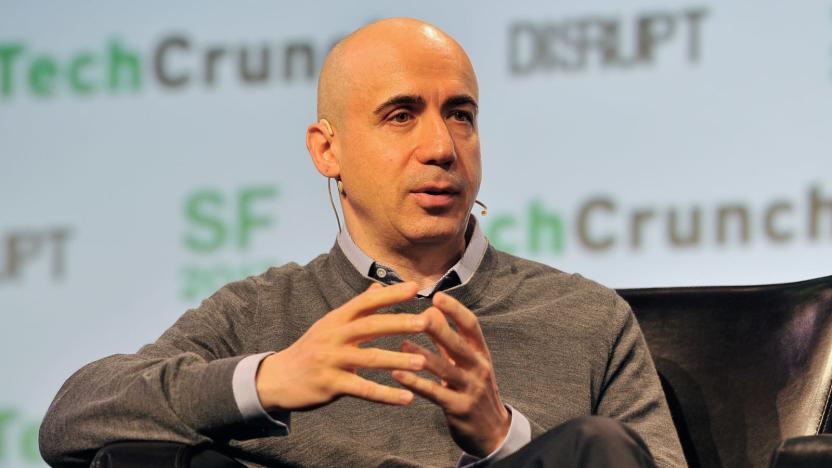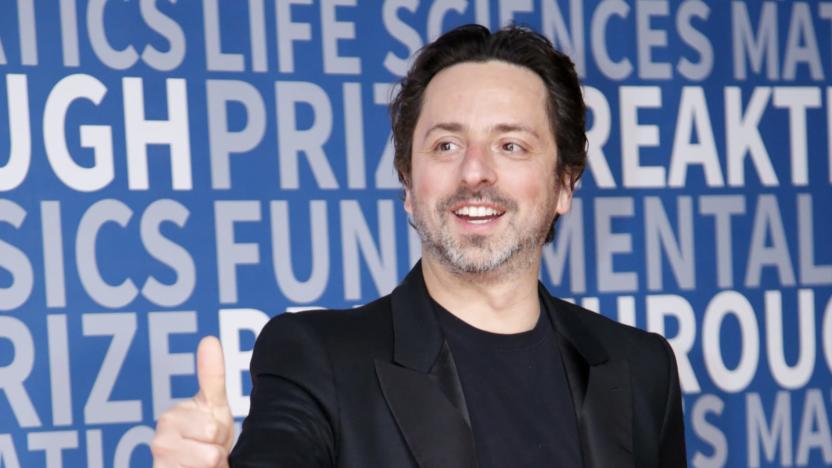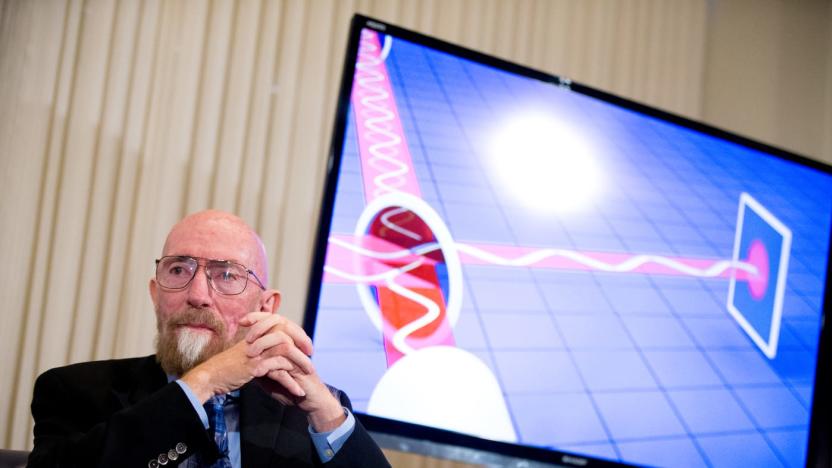yurimilner
Latest

Russia funded Facebook and Twitter investments through tech magnate
Russia's entanglement with American social networks just got decidedly complicated. Leaked documents obtained by the Guardian (among other outlets) have revealed that two state-owned Russian institutions, the oil giant Gazprom and VTB Bank, funded investments in both Facebook and Twitter through Russia-born tech luminary Yuri Milner's investment company DST Global. VTB's contribution was a relatively direct $191 million in shares, while Gazprom's investment wing backed an "opaque" offshoring company (Kanton) that ended up holding $1 billion in Facebook shares.

Breakthrough Prize awards $25 million to science luminaries
In a ceremony dubbed the "Oscars of Science," the Breakthrough Foundation handed out over $25 million in prizes to physicists, life sciences researchers and mathematicians. Hosted by Morgan Freeman, the event featured Mark Zuckerberg, Sergey Brin and other Silicon Valley notables, a performance by Alicia Keys, actors Vin Diesel and Sienna Miller, astronauts Mark and Scott Kelly and (yep) Will.i.am. The $3 million Breakthrough Prize awards are "the largest individual monetary prize[s] in science," the foundation says, and obviously life-changing. "I was totally stunned," says Lebanese-born Baylor scientist Huda Zoghbi.

LIGO team wins $3 million prize for gravitational wave discovery
The team of scientists and engineers who confirmed the existence of gravitational waves earlier this year have just nabbed a handsome $3 million reward as part of a special Breakthrough Prize in Fundamental Physics.

Inhabitat's Week in Green: The Tesla Model S gets an upgrade
The Tesla Model S is one of the highest-rated electric cars ever, and it just got even better. This week the automaker rolled out an upgrade that gives the vehicle a bigger battery, a refreshed exterior and a "bioweapon defense mode." Meanwhile, the Solar Impulse sun-powered airplane is getting set to fly across the Pacific Ocean after a lengthy stop in Hawaii. Stephen Hawking teamed up with Russian billionaire Yuri Milner on a plan to send postage-stamp sized spaceships to Alpha Centauri in search of life. IKEA announced plans to launch a chainless bicycle later this year, and a popular new bike/stroller hybrid hit the market only to sell out in a matter of hours.

'Starshot' plan gets probes to Alpha Centauri in your lifetime
The concept of exploring other star systems with probes (and not just telescopes) has proven elusive for one good reason: even the fastest spacecraft would take 30,000 years just to reach Alpha Centauri, our closest neighboring star. However, investor and space project enthusiast Yuri Milner thinks it's possible to do better. He and physicist Stephen Hawking have launched Breakthrough Starshot, a $100 million program that aims to get probes to Alpha Centauri within a generation. If all goes well, the observers would reach the relatively close-by system (4.4 light years away) within 20 years of leaving Earth.

Internet investor pours $100 million into the search for alien life
The hunt for extraterrestrial life just got a big leg up. Internet investor Yuri Milner and his Breakthrough Prize Foundation will spend $100 million supporting Breakthrough Listen, a project that will use radio telescopes, lasers and other equipment to search for alien signals. The cash will not only guarantee equipment time, but lead to dedicated processing equipment that could dramatically improve the discovery process. Researchers should not only cover several times more sky and radio wavelengths, but inspect both in greater detail and at higher speeds -- the radio telescope searches should run 100 times faster, even as they tackle five times as many wavelengths.


